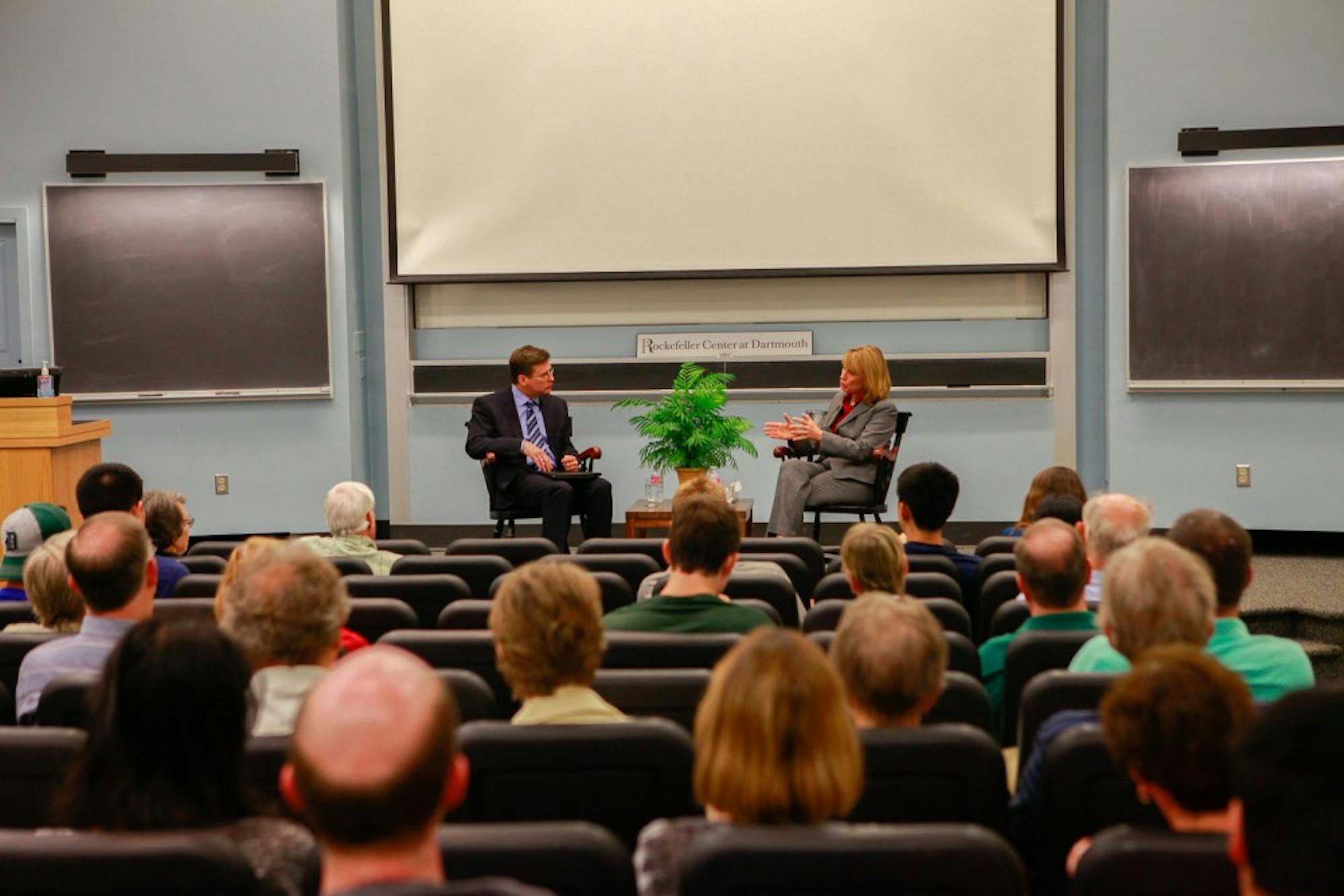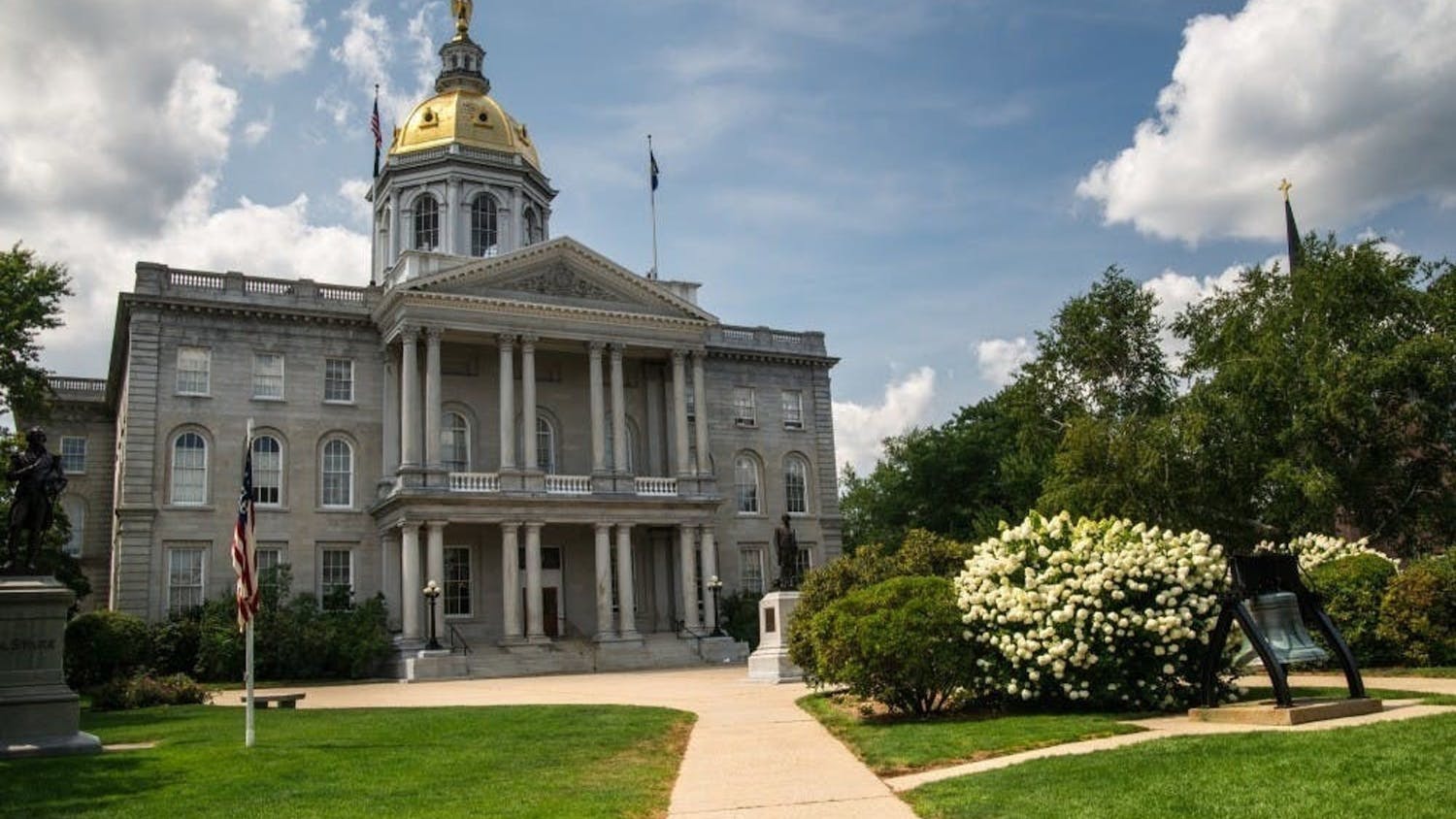New Hampshire Governor Maggie Hassan discussed issues relating to education, financial opportunities and budgets across the state at yesterday’s conversation with students, faculty and Upper Valley community members. Economics professor Charles Wheelan ’88 moderated the discussion, which took place at the Rockefeller Center.
Optimizing opportunities for the middle class, helping local businesses, encouraging innovation and technology and attracting young people to the state are her four main goals as a governor, Hassan said.
With a large number of young people leaving the state for higher education, Hassan said that the insufficient amount of young people and families in the state has increasingly become a problem. She said that she has implemented several programs and reforms to address this issue, including providing more funds to public and community colleges to prevent tuition increases.
Hassan also said that the state has become one of the leaders in promoting competency-based learning, which emphasizes an experiential, project-based curriculum, rather than a test-based approach to learning. She said that this teaching style helps students close the gap between the skill sets that employers expect and those that students actually possess.
She also emphasized the need for efficient allocation of tax revenue, especially since New Hampshire is a relatively low-tax state, and discussed the importance of funding the public transportation system.
In response to a question from an audience member about an increase in opioid use and addiction across the state, Hassan said that she has enacted several programs to decrease both the number of incarcerated drug abusers and the level of prescription and non-prescription opioid use. This includes the proposed expansion of Medicare in the state, she said, as well as the creation of a prescription monitoring program.
“We need more resources for addiction and for mental health, and one of the ways to do that is to increase Medicare,” she said.
Hassan also responded to a question concerning the preservation of the vast wildlife and natural resources of New Hampshire. She said that the issue is of utmost importance to her, citing the 10-year energy strategy she helped to create in 2014 that focuses on efficient energy use in the state.
Hassan said that, apart from becoming a wife and mother, working in a public office in New Hampshire has been the best decision of her life.
Hassan added that there is probably no other state with as much representation per capita as New Hampshire, which has 22 elected officials for only 1.2 million people. She praised the close nature between politicians and the public in the state.
“I’ll walk into a Dunkin’ Donuts, which I do a lot, and people come up to me all of the time and ask my about policy or tell me their concerns,” she said.
Wheelan said that the objective of the discussion was for students to discover the distinct nature of New Hampshire politics.
“New Hampshire is unique,” he said, “It’s not a massive state like a New York, California or Illinois. The politicians are a lot more accessible.”
He said that he hopes students take advantage of the ease with which they can get involved in politics as residents of Hanover.
Marcella Saboe ’18, a prospective government major from Houston, said that she attended the lecture to take advantage of the opportunity to learn more about local politics.
“I didn’t know much about politics here in New Hampshire, so I found it really cool to find out more about it on the local level,” she said.
Connie Lee ’18 said that the reconstruction of Interstate 93, one of the infrastructure programs enacted by Hassan, was compelling.
“I was interested to hear her initiatives with things like the highway building of I-93 as actionable items toward the main goals she had for improving quality of life in the state,” she said.
Hassan assumed office as governor in 2013 and won re-election in 2014. Before her time as governor, she worked in the New Hampshire State Senate starting in 2005. She has a Bachelor of Arts from Brown University and a juris doctorate from the Northeastern University School of Law.




